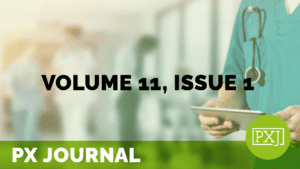The quantitative assessment of patient satisfaction in the COVID-19 epidemic compared to the epidemic-free period

Surveying patient satisfaction is considered an important part of any systematic program of quality assurance. Quality of healthcare service and patient satisfaction has been affected by the current COVID-19 epidemic. The purpose of the study was to determine how COVID-19 epidemic has affected patients in Slovenia as it is evident via permanently available questionnaire and from studying this data source to improve our response to future crises and to improve the resilience of healthcare systems. A secondary analysis of 12,756 completed questionnaires was performed via freely available patient satisfaction questionnaire in the period from October 2019 to June 2021. The number of completed questionnaires was significantly higher in the period before the COVID-19 outbreak than in the subsequent periods. Comparing COVID-19 period and epidemic-free period statistically significant differences in satisfaction assessment occurred in four variables. More patients recognized opportunities for improvement in the COVID-19 epidemic than in the epidemic-free period. This study can be upgraded with qualitative studies and implementation of systemic measures.
Related content
-
 Policy & Measurement
Policy & MeasurementEvaluation of Online Patient Complaints Regarding City Hospitals in Türkiye During the COVID-19 Pandemic: A Content Analysis Study
The COVID-19 pandemic put tremendous pressure on healthcare systems worldwide, which led to heightened scrutiny of the medical services offered by hospitals. This article aims to evaluate complaints about city hospitals in Türkiye during the COVID-19 pandemic using the Healthcare Complaints Analysis Tool, which includes three main domains and seven problem categories. The complaints submitted
Learn more -
 Policy & Measurement
Policy & MeasurementInterventions that improve patient experience evidenced by raising HCAHPS and CG-CAHPS Scores: A narrative literature review
Hospital administrators and researchers often use large, standardized surveys that examine patient satisfaction to evaluate whether interventions improve patient experience. To summarize the breadth of these interventions and how large, standardized surveys are used to evaluate them, a multidisciplinary research team conducted a review. They used PubMed and Google Scholar searches, reviews of reference lists
Learn more -
 Policy & Measurement
Policy & MeasurementMeasuring Volunteer Impact
We know that our volunteers make a huge difference in our organizations every day…but how do you show that? It can be challenging to assign hard data to work done with the heart, but those statistics can help illustrate that impact in a more meaningful way to your audience.
Learn more
